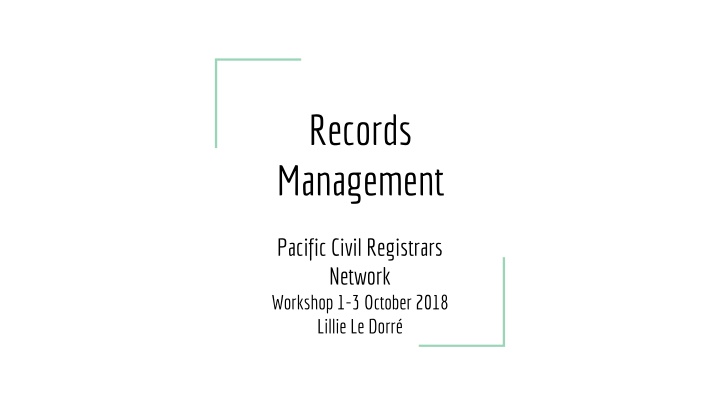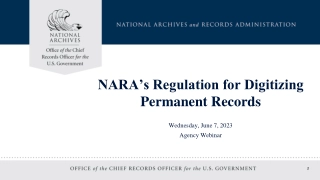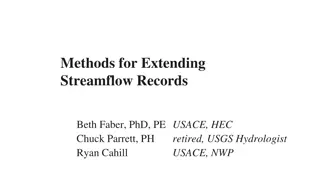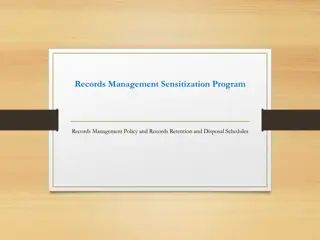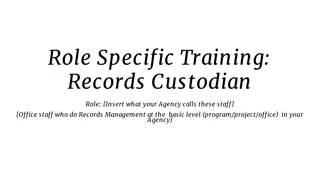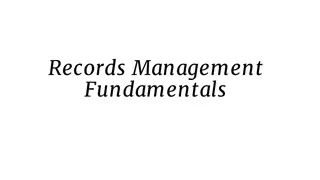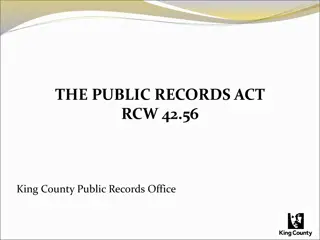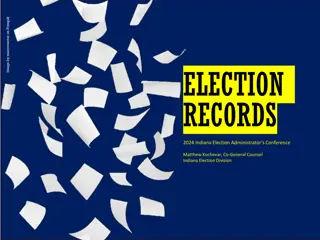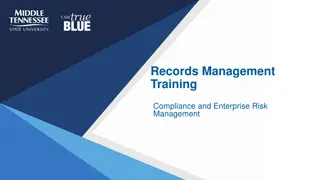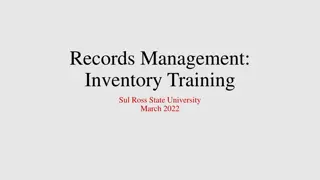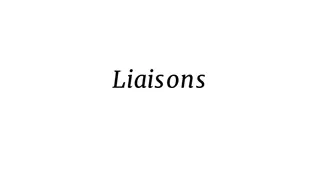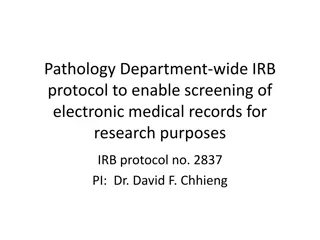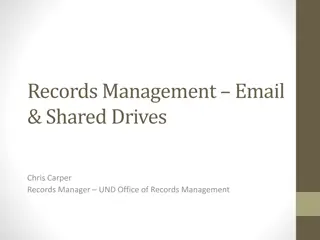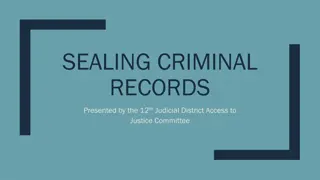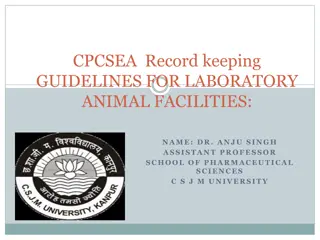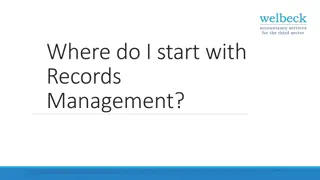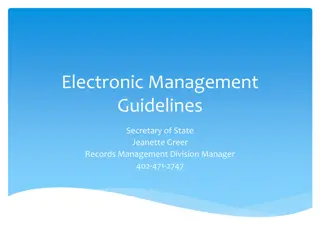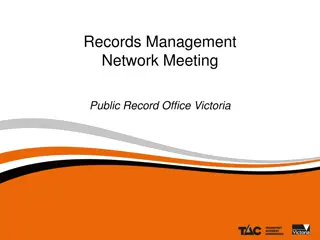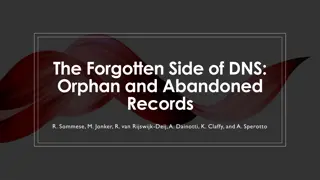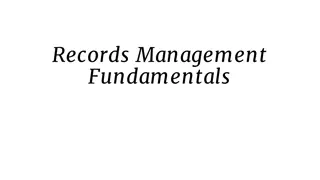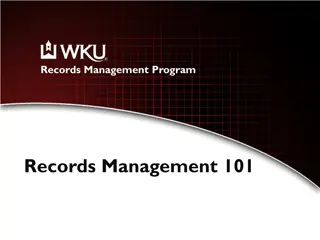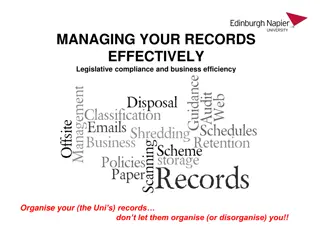Essential Records Management Guidelines
In the field of records management, it is crucial to understand the key characteristics of a record, why keeping records is important, and who is responsible for their management. This comprehensive guide covers the definition of a record, its key characteristics, the importance of records management, as well as the benefits and responsibilities associated with it. It emphasizes the significance of reliability, authenticity, and integrity in records, along with the advantages of efficient management in achieving good governance and organizational transparency.
Uploaded on Apr 12, 2025 | 0 Views
Download Presentation

Please find below an Image/Link to download the presentation.
The content on the website is provided AS IS for your information and personal use only. It may not be sold, licensed, or shared on other websites without obtaining consent from the author.If you encounter any issues during the download, it is possible that the publisher has removed the file from their server.
You are allowed to download the files provided on this website for personal or commercial use, subject to the condition that they are used lawfully. All files are the property of their respective owners.
The content on the website is provided AS IS for your information and personal use only. It may not be sold, licensed, or shared on other websites without obtaining consent from the author.
E N D
Presentation Transcript
Records Management Pacific Civil Registrars Network Workshop 1-3 October 2018 Lillie Le Dorr
What is a record? The International Standard on Records Management defines a record as: Information created, received, and maintained as evidence and information by an organisation or person, in pursuance of legal obligations or in the transaction of business. Organisations should create records whenever they carry out their business.
Anything can be a record
Key characteristics of a record Reliability Authenticity Proven to be what it purports to be Integrity Complete and unaltered Usability Can be located, retrieved, presented and interpreted Metadata Data about data Provides the information needed to retrieve and present the records Trusted as a full and accurate representation Created at the time
Why keep records? Good governance Legislative requirements Efficiency Protecting the government s interests Protecting the community s interests
What is records management? field of management responsible for the efficient and systematic control of the creation, receipt, maintenance, use and disposition of records, including processes for capturing and maintaining evidence of and information about business activities and transactions in the form of records ISO 15489-1 (2016)
Benefits of records management Supports the goal of getting the right information to the right people at the right time Reduces clutter and streamlines workflow Quick and easy retrieval Enhances transparency in governance
Your responsibilities As a government employee, you need to ensure you: make records of what you do capture your records in locations approved by your agency give your records meaningful titles handle and store records appropriately Only destroy, delete, alter or remove records if you have appropriate authorisation Take care to prevent records being lost or damaged Check security and access controls on records and ensure they are managed appropriately
Key components of recordkeeping Creation Control Use Disposal
Creation The act of documenting events, activities and decisions Make or keep a record when you need to show: what happened, when it happened and who was involved what was decided or recommended and by whom what advice or instruction was given the order of events or decisions
Control Organisations need to have systems for controlling their records so that they can be managed efficiently and found again when they are needed. CR when a completed form is handed to the Civil Registration officer, there might be a procedure to help that person know what to do with the completed form, e.g., it might be placed in a particular file for actioning. The naming of that file might be controlled by a system that is comprised of a list of words that are appropriate to use.
Use Rules about how records are used so that only those who are allowed to see government information have access to the files Here in Fiji, the Registrar is legally required to create indexes of the original register books of births, deaths and marriages, and any person on application in writing is entitled, on payment of the prescribed fee, to request a search of the indexes and receive copies or extracts.
Disposal The range of processes associated with implementing retention, transfer or destruction decisions. By systematically managing information and records through disposal, organisations can meet their statutory obligations as well as support their business needs. Records are kept for: Legal requirements Historical or archival value Unauthorised destruction can result in penalties for individuals or organisations
What is an archive? The word archive means a record that has been selected for preservation because of its value as long-term evidence of an organisation s actions and decisions. Archive can also mean the place where records that have long-term value are kept. The archivist is the professional who assesses, collects, organises, preserves, maintains control over and provides access to information or records that have been determined to have long-term value.
Recordkeeping Requirements To make sure that they can work efficiently and be accountable, organisations need to identify their recordkeeping requirements. That means understanding: what files or other records they should be making how long they should keep the records that they need who should and should not have access to the records what format the records need to be in.
Discussion What are some of the recordkeeping requirements of your organisations? Identify some examples of each and state whether they relate to laws / government policy / organisational needs / public expectations
